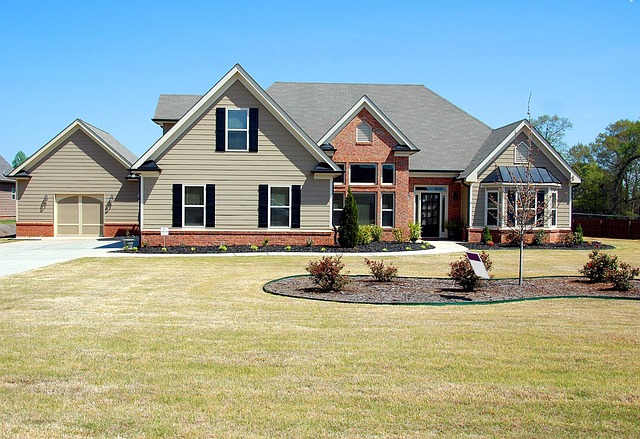Home Value Explained: Key Factors & Valuation Methods
Discover what determines a home's worth and how professionals estimate it. This guide covers the main factors that influence home value, the appraisal and valuation methods used by agents and lenders, when to revalue, and practical ways homeowners can boost equity. Learn how accurate valuation affects pricing, mortgages, insurance, and sale outcomes, and get actionable tips to increase your property’s market appeal.

Understanding what makes a property valuable is essential whether you are buying, selling, refinancing, or simply tracking your investment. Home value is shaped by a mix of physical attributes, neighborhood context, market conditions, and the valuation methods applied. Below is a clear guide to the factors that matter, how value is estimated, and practical steps homeowners can take to increase their property’s worth.
Key factors that affect home value
Location remains one of the strongest determinants of price. Proximity to quality schools, public transportation, employment centers, and desirable amenities can push a home’s value higher. Conversely, properties near high-traffic areas, industrial sites, or in declining neighborhoods may see suppressed values.
The age and general condition of a home directly influence its market appeal. Newly built homes or those that have been consistently maintained and updated typically command higher prices. Homes requiring major repairs or system replacements tend to sell for less, or need price reductions to attract buyers.
Size and usable square footage are central considerations. More bedrooms, bathrooms, and functional living areas generally increase value, particularly when space is laid out efficiently. Lot size and outdoor features — such as landscaping, decks, or pools — also contribute to perceived worth.
Unique finishes and upgrades matter as well. High-end countertops, custom cabinetry, energy-efficient systems, and smart-home features can enhance appeal to specific buyer segments and sometimes justify a premium.
Market dynamics play a big role. Supply and demand, interest rates, local employment trends, and broader economic conditions can fluctuate and affect how much buyers are willing to pay at any given time.
Common methods for determining home value
Comparative Market Analysis (CMA): Agents use CMAs to estimate a price by comparing the subject property to recently sold, similar homes nearby. CMAs are practical for arriving at a realistic listing price based on current market activity.
Cost Approach: This method calculates what it would cost to rebuild the home from scratch, then subtracts depreciation. It is often used for newer properties or unique structures where comparables are scarce.
Income Approach: Lenders and investors commonly use this for rental or income-producing properties. It centers on the potential revenue a property can generate, converting rental income into a present value using capitalization rates.
Automated Valuation Models (AVMs): AVMs use algorithms and publicly available data to deliver quick estimates. They are useful for rough valuations but can miss recent upgrades, unique layout features, or local market nuances.
Each approach has strengths and limitations. In many cases, professionals blend methods to arrive at the most reliable estimate.
Why accurate valuation matters
For sellers, getting the price right from the start attracts the right buyer pool and reduces time on market. Overpricing can deter interest; underpricing can leave equity on the table. Buyers rely on trustworthy valuations to avoid overpaying and to negotiate effectively.
Lenders depend on accurate appraisals to underwrite mortgages and minimize risk. Insurance companies also use value estimates to set appropriate coverage levels and premiums. Homeowners benefit from knowing their home’s value when considering refinancing, home equity loans, or disputing property tax assessments.
How often should you reassess your home’s value?
There is no one-size-fits-all timeline. A practical rule of thumb is to obtain a professional valuation every 2 to 3 years, or whenever you plan to sell, refinance, or secure a home-equity line. In fast-moving markets, more frequent check-ins can be helpful. Also, schedule a fresh appraisal after major renovations or additions, since improvements can materially increase value.
Online estimate tools can provide a quick snapshot, but they should not be the sole basis for significant financial decisions due to their data and algorithm limitations.
The role of real estate professionals
Real estate agents bring local market expertise and can prepare a CMA, craft pricing strategies, and advise on staging and marketing to maximize sale proceeds. Professional appraisers follow rigorous methodologies and produce formal reports that lenders and some buyers require. Their impartial assessments are valued for accuracy and compliance with industry standards.
Practical ways homeowners can increase property value
- Renovations and updates: Focus on kitchens and bathrooms, modern systems, and improving energy efficiency. These offer some of the best returns when done thoughtfully.
- Curb appeal: First impressions matter. Improve landscaping, repaint the exterior, and make small facade repairs to enhance attraction.
- Regular maintenance: Routine upkeep prevents deterioration and preserves value over time.
- Add usable space: Finishing basements, building decks, or converting attics into living areas increases functional square footage.
- Smart upgrades: Energy-efficient windows, modern thermostats, and security systems appeal to today’s buyers and can boost perceived value.
| Improvement | Estimated Cost Range | Potential Value Increase |
|---|---|---|
| Kitchen Remodel | $15,000 - $50,000+ | 5% - 15% |
| Bathroom Renovation | $10,000 - $30,000 | 3% - 7% |
| New Roof | $5,000 - $15,000 | 2% - 5% |
| Landscaping | $2,000 - $10,000 | 1% - 3% |
| Energy-Efficient Windows | $8,000 - $20,000 | 1% - 3% |
Prices, rates, or cost estimates mentioned in this article are based on the latest available information but may change over time. Independent research is advised before making financial decisions.
Understanding how home value is calculated and what influences it empowers homeowners, buyers, and sellers to make smarter decisions. Use professional valuations when stakes are high, keep an eye on local market trends, and invest strategically in improvements that offer the best balance of cost and return. With the right information and timing, you can protect and grow one of the most important assets most people ever own.






